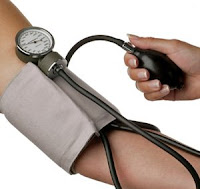Hypertension Description is a persistent or intermittent elevation of systolic arterial blood pressure above 140 mm Hg or diastolic pressure above 90 mm Hg. Hypertension is a chronic disease, primary goals in Hypertension Nursing Care Plan is to reduce the blood pressure to less than 140/90.
Hypertension classified:
- Primary (essential) accounts for over 90% of cases and is often referred to as idiopathic, since the underlying cause is not known.
- Secondary hypertension results from a number of conditions that impair blood pressure regulation, and accounts for only 5% to 8% of all cases of hypertension
- Malignant hypertension, results from either type and can cause blood pressures as high as 240/150 mm Hg, possibly leading to coma and death.
Cause of Hypertension:
- Cause of primary hypertension is not known; however, associated with risk factors such as genetic predisposition, stress, obesity, and a high-sodium diet.
- Secondary hypertension results from disorders that impair blood pressure regulation, particularly renal, endocrine, vascular, and neurological disorders, hypertensive disease of pregnancy (toxemia) and use of estrogen-containing oral contraceptive
- Malignant hypertension is also not known, but it may be associated with dilation of cerebral arteries and generalized arteriolar fibrinoid necrosis, which increases intracerebral blood flow
Ethnic/Racial African Americans and elderly people are most prone to hypertension and its complications.
Physical Examination Hypertension Nursing Care Plan:
- Appear symptom-free in early stages, although flushing of the face may be present
- Fundoscopic examination of the retina may reveal hemorrhage
- Measure blood pressure in both arms three times 3 to 5 minutes apart while the patient is at rest in the sitting, standing, and lying positions.
- Hypertension should not be diagnosed on
- The basis of one reading unless it is greater than 210/120 mm hg.
Diagnostic Highlights Hypertension Nursing Care Plan
- Blood urea nitrogen
- Serum creatinine
- Total cholesterol
- Triglycerides
- Electrocardiogram
Because Hypertension is chronic disease and a major cause of stroke, cardiac disease, and renal failure, Hypertension nursing diagnosis on nursing care plan for Hypertension many associated with the Knowledge deficit about Diet, Disease process, Health behaviors, Medication, prescribed activity, Treatment regime and lifestyle
Primary Hypertension nursing diagnosis is knowledge deficit related to chronic disease management,
Possible nursing diagnosis which is commonly found in nursing care plan for Hypertension- Fatigue
- Ineffective coping
- Ineffective tissue perfusion: Cardiopulmonary
- Noncompliance: Therapeutic regimen
- Risk for injury
Nursing outcomes Hypertension nursing care plan, Patients will:
- Identify appropriate food choices.
- Express that he has more energy.
- Demonstrate adaptive coping behaviors.
- Maintain adequate cardiac output and hemodynamic stability.
- Comply with his therapy regimen.
- Remain free from complications
- Teach the patient to use a self-monitoring blood pressure cuff and to record the reading at least twice a week.
- Tell the patient to take his blood pressure at the same hour each time, with out more than usually activity preceding the measurement.
- Tell the patient and family to keep a record of drugs used in the past.
- To encourage compliance with antihypertensive therapy, suggest establishing a daily routine for taking medication. Warn the patient that uncontrolled hypertension may cause stroke and heart attack. Tell him to report any adverse reactions to prescribed drugs. Advise him to avoid high-sodium antacids and over-the-counter cold and sinus medications containing harmful vasoconstrictors.
- Help the patient examine and modify his lifestyle behavior.
- Suggest stress-reduction groups, dietary changes, and an exercise program.
- Encourage a change in dietary habits. Help the obese patient plan a reducing diet.
- Tell to the patients to avoid high-sodium foods, table salt, and foods high in cholesterol and saturated fat.



0 comments:
Post a Comment